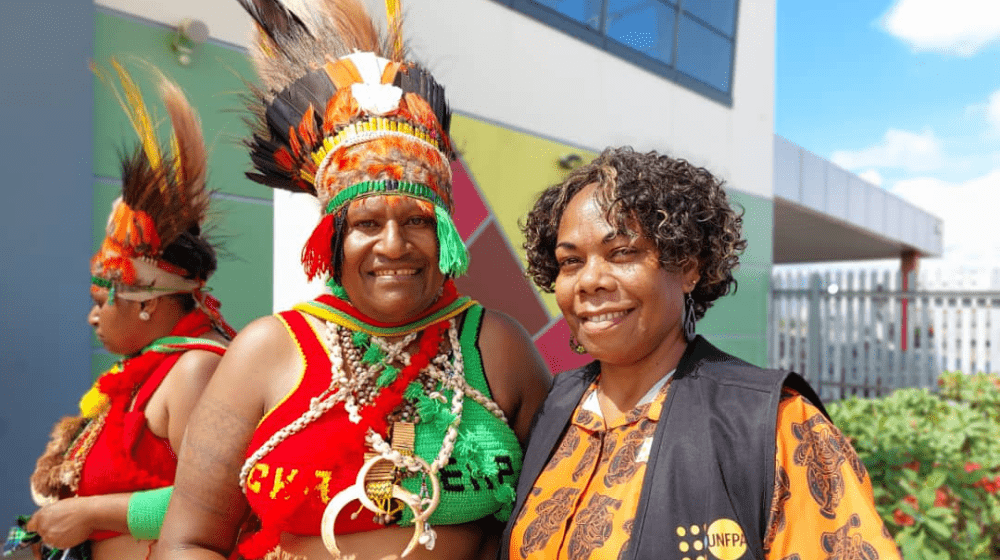Delays in the decision to seek appropriate medical help for an obstetric emergency, delays reaching a health facility, and the delay in receiving adequate care when reaching the facility, are the leading reasons for the high rate of maternal mortality in Papua New Guinea.
Master Midwifery trainer Sr. Aiva Pikuri from the Goroka Base General Hospital in Eastern Highlands Province shared also that shock, postpartum hemorrhage, and postpartum sepsis are the main causes for maternal death in the country and mothers continue to face them because there are no proper strategies to address the three delays.
“Mothers continue to face this risk because of the lack of family planning, lack of supervised deliveries, lack of early and good antenatal care, and appropriate recognition and prevention of the three delays,” said Sr Aiva.
“There has to be strategies in place to reduce the three delays,” she said. “There must be a recognition and decision to seek care, there has to be transport available to take mothers to care, and then there has to be provision of quality care as well.”
Aiva Pikuri shared her views during during a week-long ‘Helping Mothers Survive’ course for midwifery trainers held earlier this month. This course, focusing on Prolonged and Obstructed Labour, was facilitated by the United Nations Population Fund and the Burnet Institute, in support of the National Department of Health to help midwives assess, monitor, and support women whose labour is not progressing normally, or those experiencing difficulties in labour.
“I am thankful for the continued support being provided by UNFPA especially in the professional development of health workers, not just through this trainer course but most importantly the Emergency Obstetric and Newborn Care (EMONC) training which has been useful to our health workers,” shared Sr Aiva.
As a master midwifery trainer, Sr Aiva is also responsible for capacity building for community health workers (CHW) in Eastern Highlands, especially those in rural settings. Training that she acquires through UNFPA and other supporting partners, she transfers to grow the wealth of knowledge of her colleagues.
“A community health worker from Nupuru Health Sub Center in Lufa District was able to save the life of a mother who had a village delivery and had lost a lot of blood,” said Sr Aiva. “Through correctly diagnosing and managing a massive postpartum hemorrhage and applying the non-pneumatic anti-shock garment, they were able to buy time before referring her to the Goroka Base Hospital where I was stationed.”
“I continued with blood transfusion and other care and management, eventually saving the mother’s life. It was a near miss. This success was thanks to the upskilling and training I was able to provide for this CHW following my capacity building through the EmONC training.”
The training undergone by these midwives have helped the lives of many women and babies and prevented and managed many complications as well. According to Sr Aiva, through the EmONC training the postpartum hemorrhage rates have been reduced and identified and pre-eclampsia and eclampsia are being identified and managed competently through the correct usage of Magnesium Sulfate.
When talking about the recent Prolonged and Obstructed Labour training, Aiva said this training is paramount, and should be given more time to have the training on an in-depth level.
“What we learn here, we will pass on to our health workers and community health workers,” said Sr Aiva. “This is why we must be trained to the best of our ability, involving all important components so as midwifery trainers we can plan and implement the best care to women and babies in Papua New Guinea.”
UNFPA is committed to working alongside the National Department of Health and our partners in strengthening the capacity of the health workforce in the areas of sexual and reproductive and maternal health, to ensure services and supplies are available when and where they are needed.
About Midwifery and EMONC Training
UNFPA works to achieve a world in which every childbirth is safe. The EmONC training package has been pivotal to the organization’s partnership with the National Department of Health on strengthening maternal health in Papua New Guinea, with over 100 midwives and healthcare providers trained across the country. In addition, UNFPA is working to equip this workforce with the equipment and medicines they need to provide the best care to women and girls in PNG through the provision of sexual and reproductive health commodities secured with support from the Australian Government.


